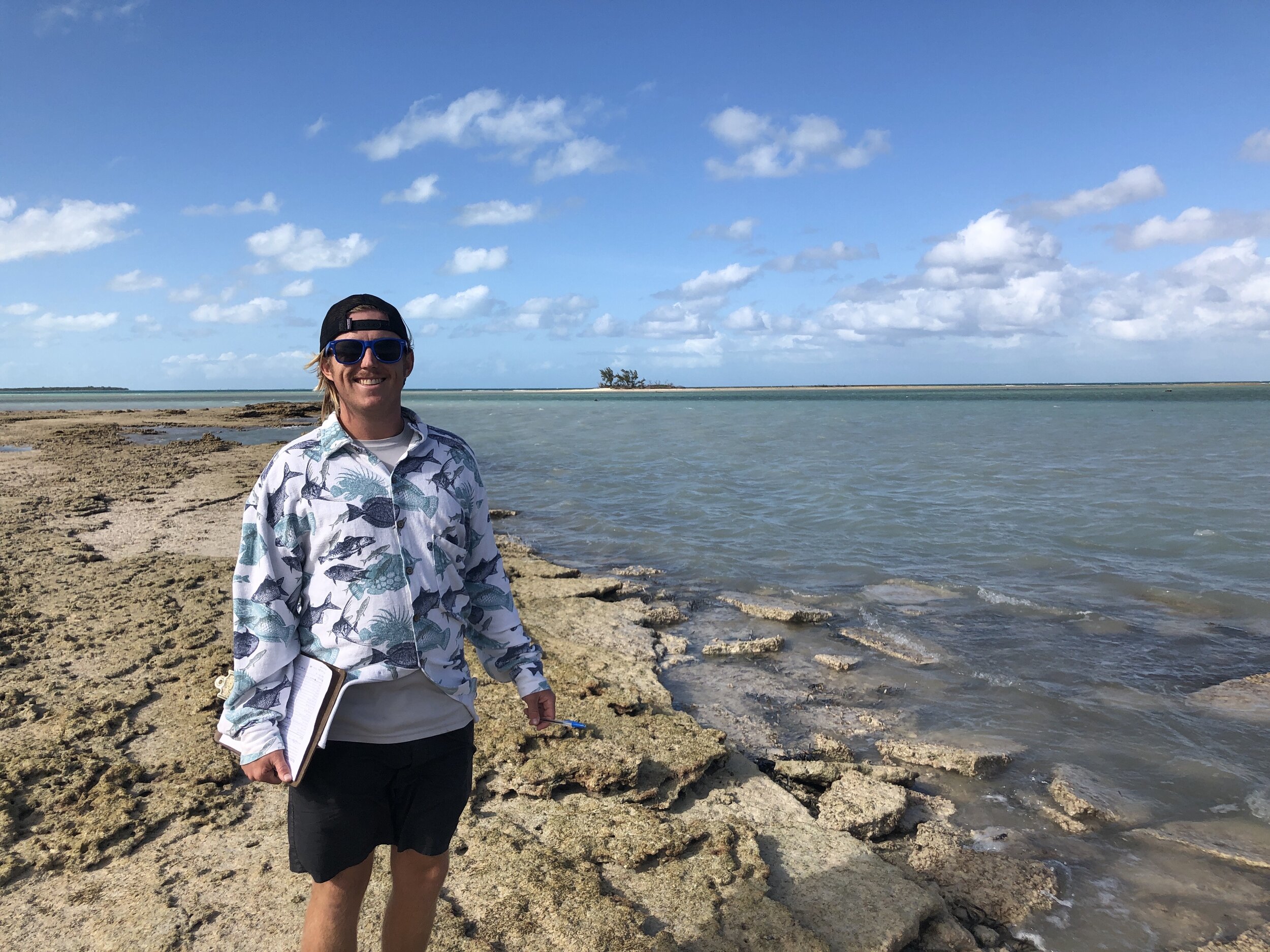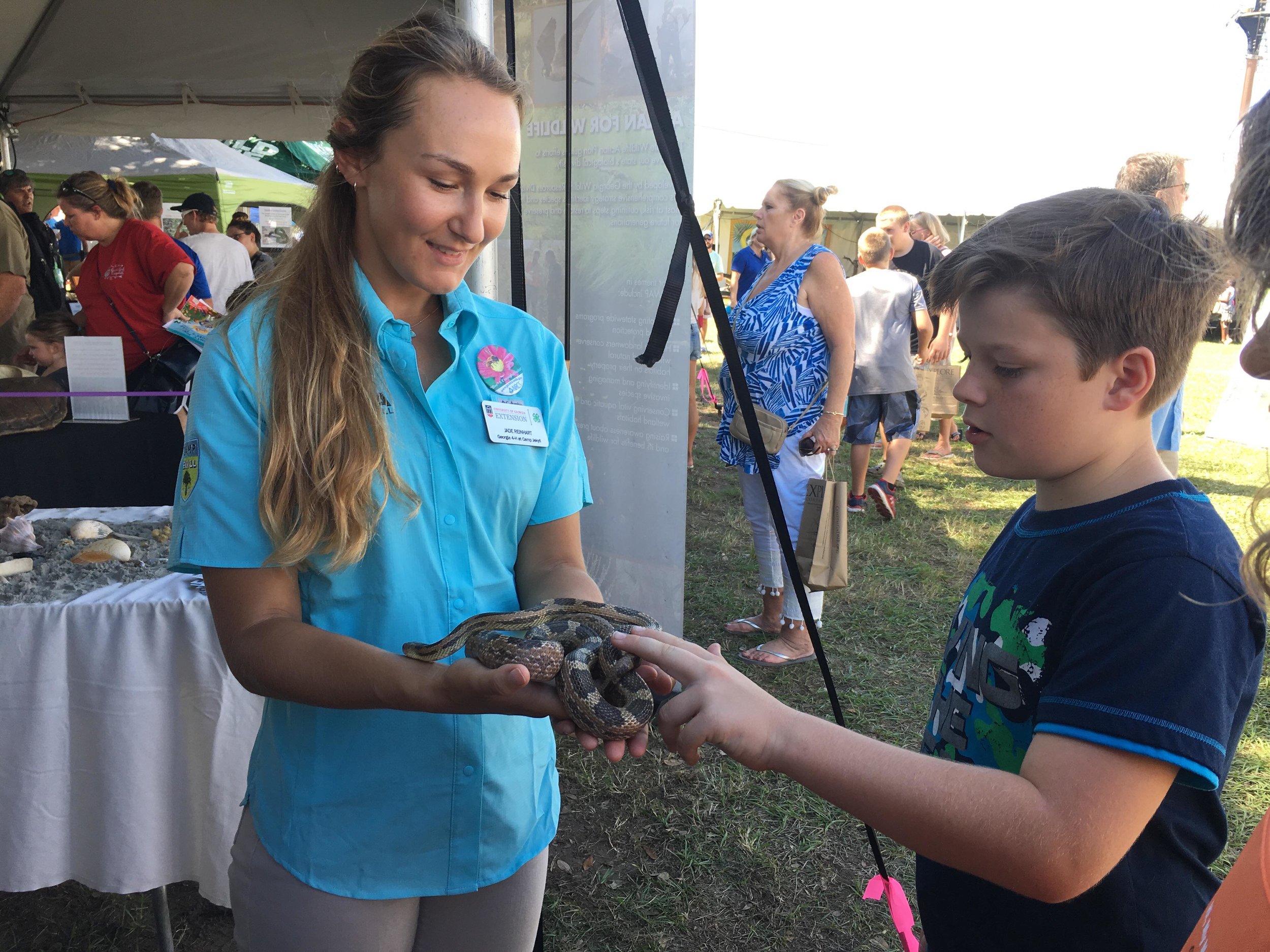Staff Highlight: A conversation with Ricardo Riley
/Ricardo “Cardo” Riley, Facilities Director
How long have you been working at Forfar?
Thirty-two years, full time working. I was a Divemaster, and then took care of the facilities and then did all of the mechanic work on the cars, did all of the mechanic work on the boats, because we didn’t have the Mennonites at the time.
Did you grow up in this area when you were little?
Yeah, I grew up about half a mile from Forfar Field Station.
Did any of your family work here before you started working here?
My dad worked here when Archie built the place. My dad knew Archie, they were great friends. Archie gave us a lot of pictures of himself, we have Archie with slit shells, we have Archie holding me as a boy and my sister. And then my uncle, he worked with Archie too, and Archie give him a piece of Forfar property when he got married, where the Pink House is. It’s a little house right here off on the end of the property. It’s still there.
How did your role at Forfar come to change and progress over time?
I used to work in Nassau and I came here because I grew up mostly with my grandmother, not with my mother. When we went to Nassau, I would go and live with my Grammy because she always loved me more than all of the other grandkids, over all, and they all know that (laughing). She has close to 30 grandchildren. She taught me a lot; she was sweet. And when I came here [to Andros], they didn’t know me, no one really know me that much because I would only be here in the summer time. And then Rick Perkins was working here and we became really good friends and he said ‘hey, Ben wants you to work here. Do you want a job?’ and I said ‘do I want a job? I wanna go to the States. Well, what am I going to do?’ and they said ‘you are going to do grounds keeping.’ So I did grounds keeping for one week. So I came in and they saw my potential. I could fix a boat engine very good at this time and they saw that and they said to me, ‘you’re not supposed to be raking the yard, you want to do diving?’ and I said ‘yeah.’ And I was 18. Ben told him that he wanted me to be the Divemaster, so he says that he’s going to train me a little tough. The dive instructor after training me said ‘he would be the perfect Divemaster, he doesn’t panic, he just smiles when you turn his air off, you take his mask off and put it on the ground, he still finds it. He would definitely be a good Divemaster.’ The Divemaster course took I was taught by Jim Conkel, he was from Ohio, and he dived with Archie, and Ben would have him come down and he would teach diving, and he was very good.
Archie must have died when you were very young, but do you have any memories of him?
When Archie passed away, I was around three or four, so I don’t have any memories [of him], just photos.
What about Ben Bohl? I’m sure you have a lot more memories of Ben.
Yeah, I have a lot of memories, we did a lot of road trips together, we did a lot of trips flying together, back and forth from the island to Florida and it was great. I know Ben really well, I stayed with his parents [in the States] for weeks on top of weeks. We were close. He was close with a lot of Bahamians, but I consider myself being the closest to Ben, and I think Elthymae and Susan, they would tell you that. When it was time for Ben to talk to someone, he tells me come over to Florida, and I would go over there and we would talk for weeks when things were not going good up there in the office.
When did you last see Ben? What kind of character was he?
The last time I saw Ben was 2014. Everybody likes him and he had a heart, that when it comes to people, he had a heart that no one really had. Anyone who would come here to Forfar, he would go and take out the whole pan of brownies, any kids, and he would just give, and if someone would pass and say they hungry, he would say ‘go in the pantry, take food.’ His heart, I haven’t seen anyone else like that. He liked to help people, loved to help people. He would throw big Thanksgiving feast, big Christmas feast. He loved helping people, anyone could tell, he loved helping people along the way.
Did you think from what you have heard about Archie that there are any similarities between Ben and Archie?
Yeah. Ben used to bring groups here, because Ben started out in ’70, and he knew Archie and him and Archie would talk. Ben told me a story, he said that Archie pulled him aside, and I don’t know if Archie knew that he was going to die, but Archie pulled Ben aside and said to him ‘listen, this community, Blanket Sound, this is the community that you want to stay in, and I want you, whatever business you do, I want you to do it right here in Blanket Sound, this is the best set of people, the whole island have good people, but this is going to be the easiest spot that you can run this business and this will be the spot where you don’t have a lot of activity and fighting against you, it’s Blanket Sound, and I want you to stay in this area.’ And then he died, Ben says maybe like, 6 to 9 months later. And Archie told him ‘don’t move out of this area’ for the last time he saw him before he died, ‘stay in this area.’ And it happened.
What have been your favorite memories over the years at Forfar?
Flying back and forth in the IFS plane from Andros to Florida and road tripping with Ben. He loved to road trip with me, I liked to road trip with him, it was great. We would go to Utah. Once we left from here, we would go to Atlanta, we would go into Minnesota, we would go up to Denver. He (Ben) used to run Out West Trips. We had a lot of interns when they would come in, they asked if they could do one of those Out West Trips and he would say ‘yeah’. It was me and Ben and the chaperones and sometimes we would have someone else go along with us. We used to drive vans.
Over your time, you must have met so many people coming down here and working here as well. Do you keep in contact with people that you met along the way?
Yes, I used to keep in contact with a lot of people. I would go to the States every summer and I would see a lot and some I wouldn’t see but I would call them a lot. I lost contact with them after my first house burned down to the ground. We just finished building it, furnishing it out, everything, didn’t leave a dollar, and it burnt down. And so, I lost it all, my things as well as my contacts.
What does Forfar mean to you?
Forfar means a whole lot to me because I’ve been through a lot of stuff here at Forfar, I’ve been through some good stuff and I’ve been through some very bad stuff. I’ve seen Forfar when it was at its high peak when I first came. Forfar had so many people coming here, they had this place (the station), and two campsites. Over there (to the North), there was a whole full campsite, and then the campsite over there (to the south) was always full. We would have sometimes 180 people between the three spots, and I’ve been through all of that, and worked through all of that. And Forfar means a whole lot (to me). I would love to see Forfar the whole way Lindsey is taking it, pick it up, and be around for a long time. I have a lot of nice memories here.



















